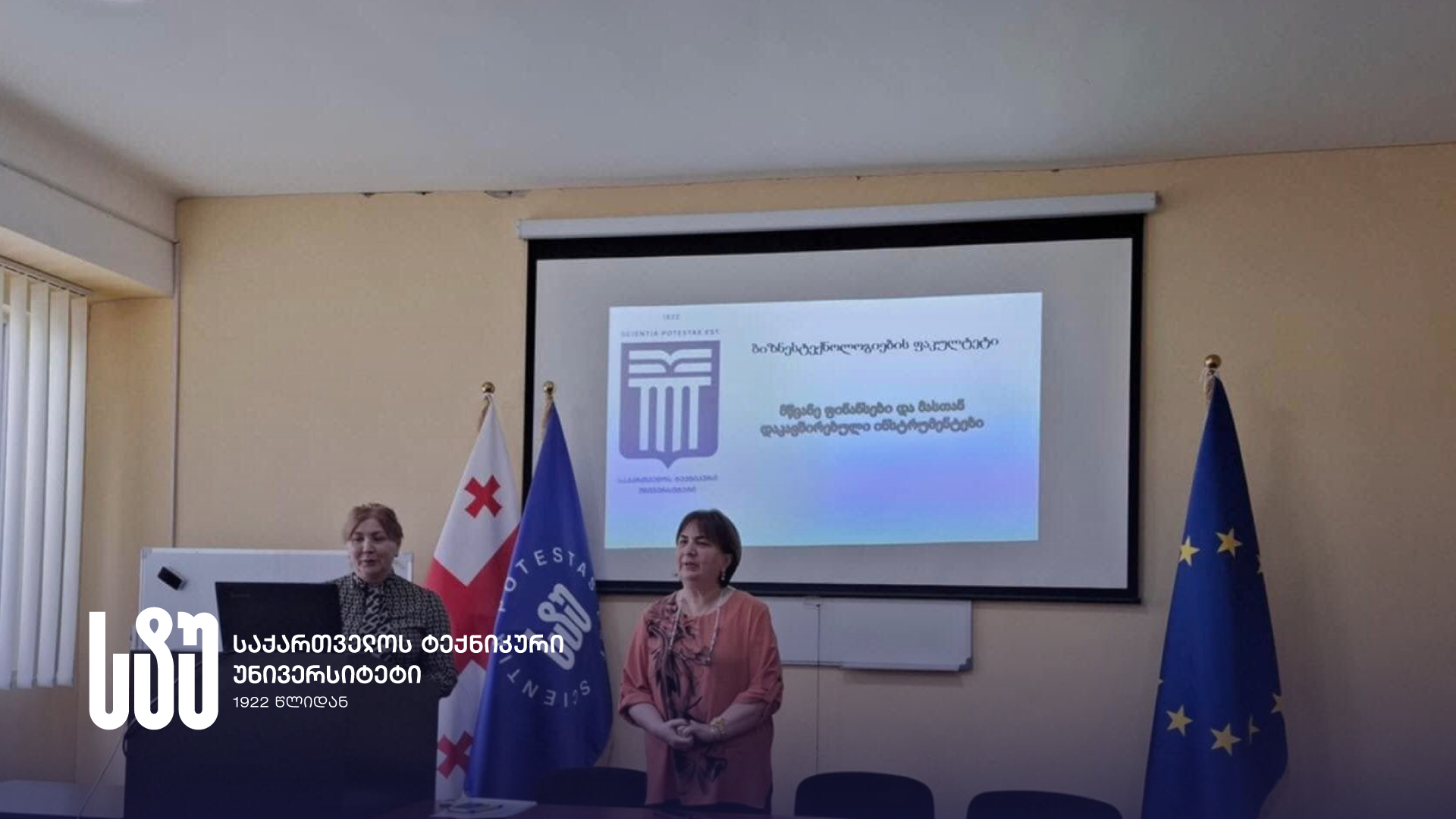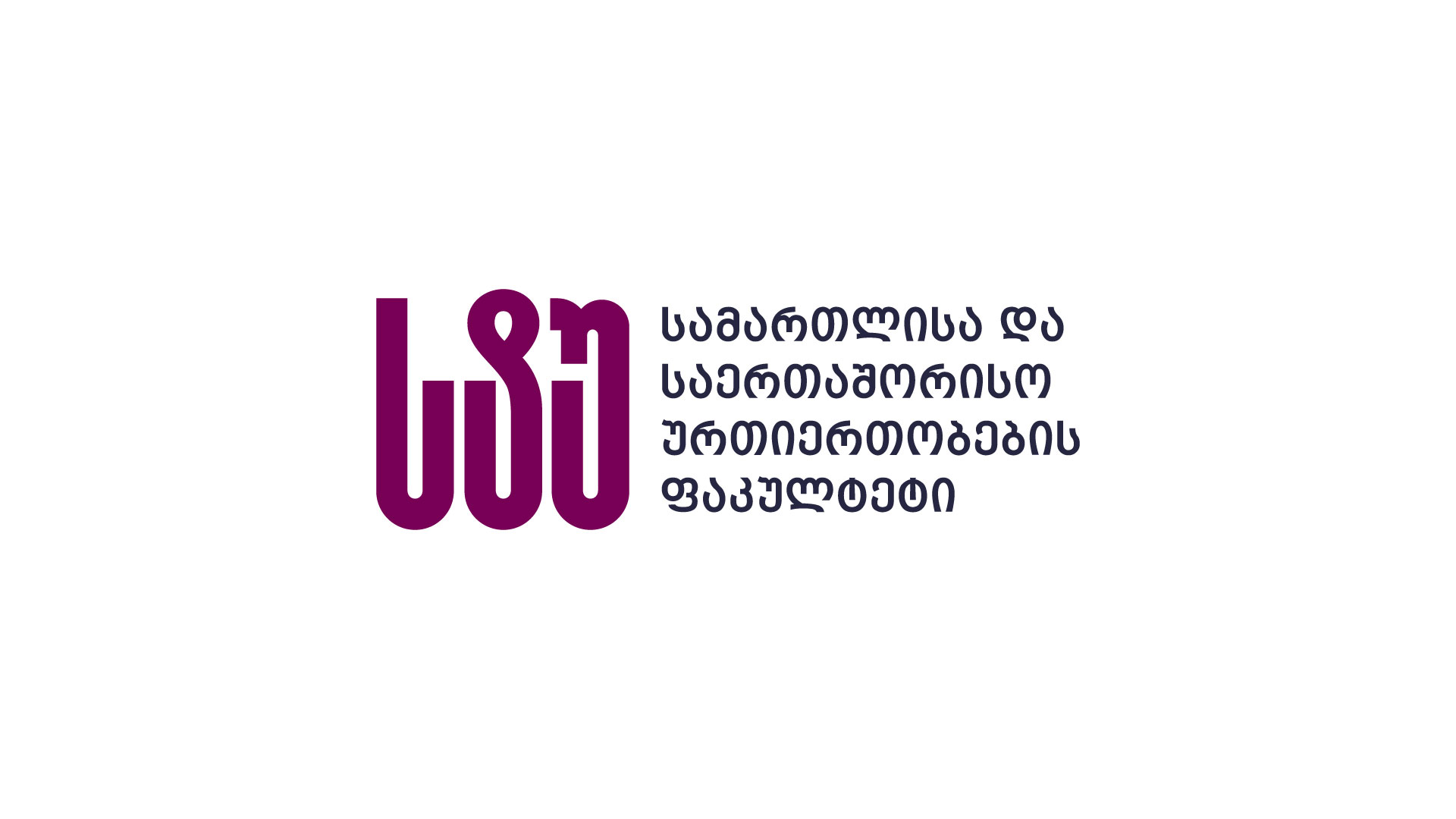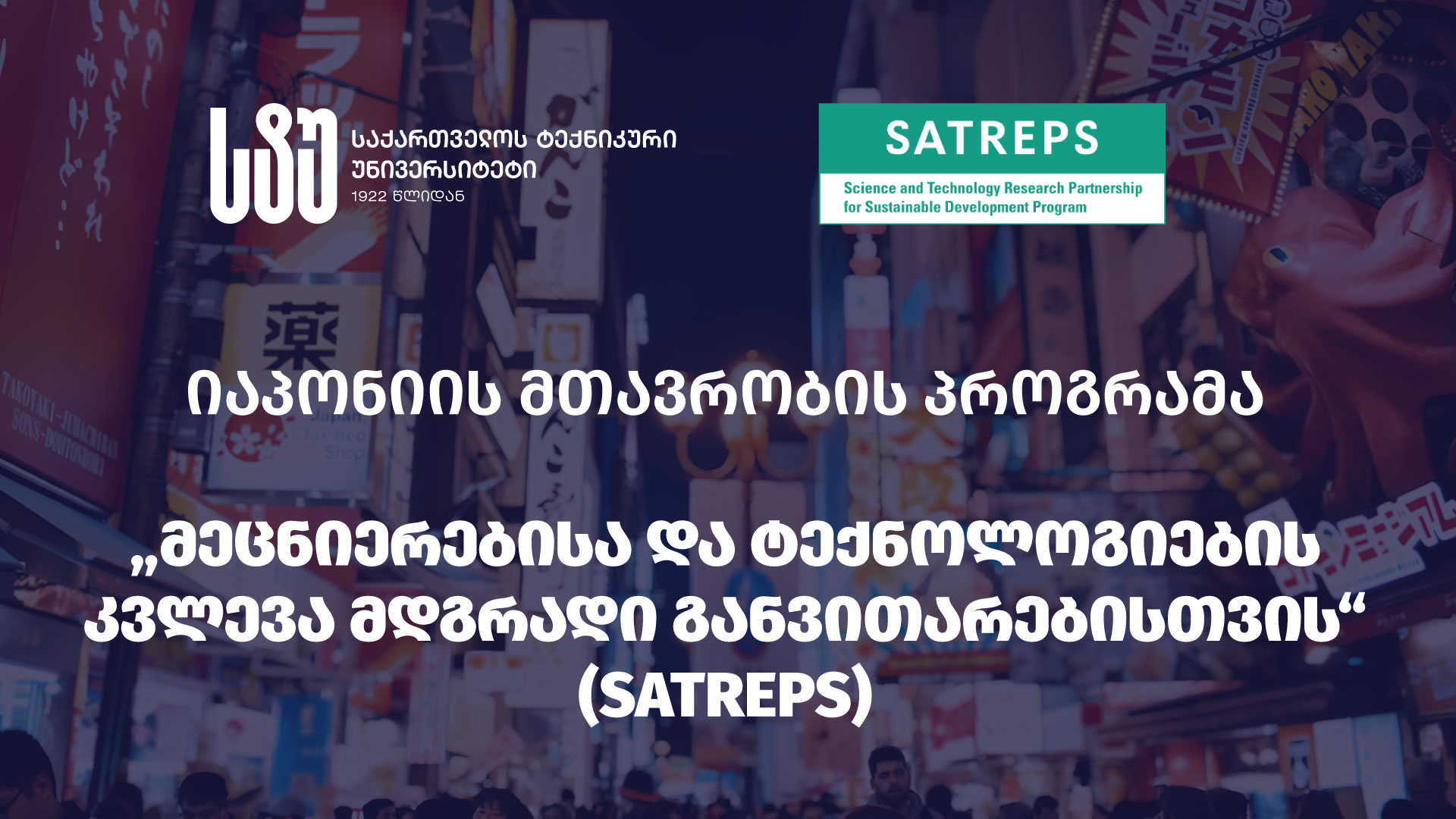A Public Lecture on Green Financing Was Held at GTU
05-02-2025
A public lecture “Green Financing and Its Instruments - Foreign and Georgian Experience” was held for students of the Faculty of Business Technologies of the Georgian Technical University.
Mzevinar Nozadze, Associate Professor of the Faculty of Business Technologies, led the public lecture, which was held within the framework of the university project “Green Finance and Related Instruments.”
The public lecture, along with students, was attended by the Dean, Professor Rusudan Kutateladze, Deputy Deans - Professor Guguli Kurashvili and Associate Professor Giorgi Sulashvili, as well as researchers and professors of the Faculty of Business Technologies.

As Mzevinar Nozadze noted, green, or sustainable financing, envisages the promotion and financial support of activities that address social and environmental challenges. According to her, there is increasing financial support in the world for projects and activities that are aimed at neutralizing climate change and raising awareness of social issues such as biodiversity, inclusiveness, access to healthcare and education, income equality, labor rights, and others.
The speaker focused on the opportunities, experience, and instruments for investing in sustainable financing and green initiatives in Georgia and abroad, and noted that in terms of green financing, the trend of using fixed-income instruments, i.e. green and sustainable bonds, is particularly growing, which is gradually gaining ground in our country. As Mzevinar Nozadze mentioned, Georgian companies are actively issuing green, social, and sustainable bonds, and the volume is growing annually.
As Mzevinar Nozadze noted, green products and services derived from them have a positive impact on the competitiveness of companies in any country, contributing to the positioning of small and medium-sized businesses in green supply chains, which in turn not only increases export potential in the international market, but also, through the use of energy and resource efficiency, contributes to reducing the negative impacts of the economy on the environment, healthcare, and climate change.
The public lecture was held in an interactive format, several questions were asked by students and professors, and interesting opinions were expressed regarding sustainable and green financing.
Mzevinar Nozadze, Associate Professor of the Faculty of Business Technologies, led the public lecture, which was held within the framework of the university project “Green Finance and Related Instruments.”
The public lecture, along with students, was attended by the Dean, Professor Rusudan Kutateladze, Deputy Deans - Professor Guguli Kurashvili and Associate Professor Giorgi Sulashvili, as well as researchers and professors of the Faculty of Business Technologies.

As Mzevinar Nozadze noted, green, or sustainable financing, envisages the promotion and financial support of activities that address social and environmental challenges. According to her, there is increasing financial support in the world for projects and activities that are aimed at neutralizing climate change and raising awareness of social issues such as biodiversity, inclusiveness, access to healthcare and education, income equality, labor rights, and others.
The speaker focused on the opportunities, experience, and instruments for investing in sustainable financing and green initiatives in Georgia and abroad, and noted that in terms of green financing, the trend of using fixed-income instruments, i.e. green and sustainable bonds, is particularly growing, which is gradually gaining ground in our country. As Mzevinar Nozadze mentioned, Georgian companies are actively issuing green, social, and sustainable bonds, and the volume is growing annually.
As Mzevinar Nozadze noted, green products and services derived from them have a positive impact on the competitiveness of companies in any country, contributing to the positioning of small and medium-sized businesses in green supply chains, which in turn not only increases export potential in the international market, but also, through the use of energy and resource efficiency, contributes to reducing the negative impacts of the economy on the environment, healthcare, and climate change.
The public lecture was held in an interactive format, several questions were asked by students and professors, and interesting opinions were expressed regarding sustainable and green financing.


